Pride Month 2023

This June sees the start of Pride Month and, for LGBTQ+ people, it’s a chance to celebrate our authentic selves. In a world that sometimes makes us feel invisible or marginalised, the power of music can provide a sense of community. Simply hearing our identities represented in the lyrics of a song has the potential to make us feel accepted. And seeing artists embracing their authentic selves can empower us to feel comfortable being who we are.
As Pride Month is celebrated, it’s important to acknowledge the profound relationship between music and the LGBTQ+ community. In this blog post, we will explore the intersection of music and Pride by taking a look at the historical significance, representation in the music industry, global initiatives, and the impact of queer music in TV and film.
The Importance of Pride Month
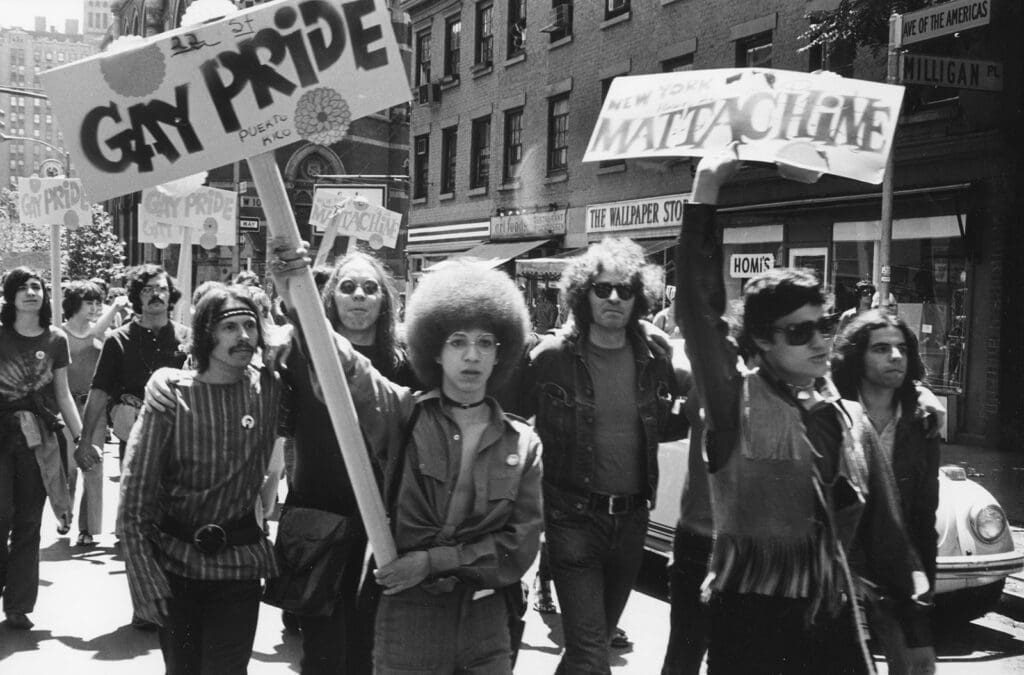
Pride Month has its roots in the Stonewall Riots of 1969, which took place at the Stonewall Inn, a gay bar on Christopher Street in New York City. The LGBTQ+ community’s response to police raids on the establishment sparked a series of events that lasted for days.
The Stonewall uprising marked a pivotal moment in the fight for LGBTQ+ rights, galvanizing the community and sparking the modern-day LGBTQ+ rights movement.
The rainbow flag – first designed for the 1978 San Francisco Gay Freedom Day celebration as a symbol of hope and liberation – has since been updated to incorporate elements of the Philadelphia flag and Transgender Pride flag, serving as a powerful symbol of unity and progress.
Through a series of global Pride events observed annually in the month of June, Pride Month celebrates the progress made in advancing equality whilst recognising the challenges still faced by many in the community.
Upcoming Pride Events:

Tel Aviv Pride, Israel – Sunday, 4 June 2023
São Paulo Gay Pride Parade, Brazil – Sunday, 11 June 2023
NYC Pride, United States – Sunday, 25 June 2023
Pride in London, United Kingdom – Saturday, 1 July 2023
Representation in Music
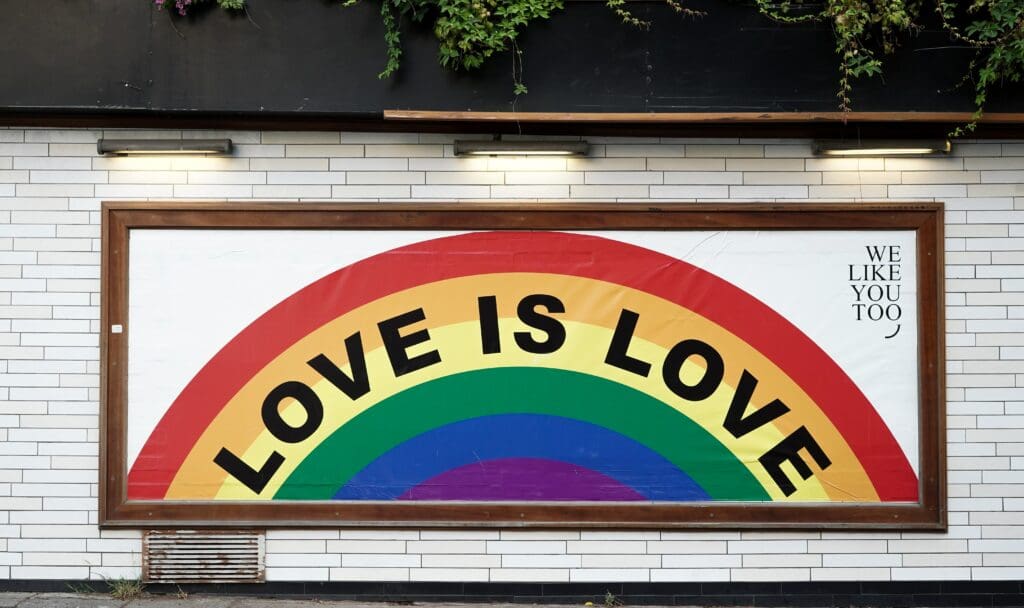
Music has played a vital role in providing a platform for LGBTQ+ individuals to express their identities, experiences, and emotions. In the UK, approximately 5% of people openly identify as LGBTQ+, while globally, surveys suggest that around 10% of people identify as LGBTQ+. Notably, within the top 50 monthly most-listened artists on Spotify, around 12% identify as LGBTQ+. That’s above the UK and global averages.
The influence of queer artists and allies in the music industry has been instrumental in promoting acceptance and equality. Throughout the 2000s and 2010s, a wave of artists, including Lady Gaga, Christina Aguilera, Mika, Troye Sivan, and Years & Years, used their music to advocate for LGBTQ+ rights and spread messages of love, self-acceptance, and pride.
Notable milestones include Troye Sivan’s coming-out video on YouTube in 2013, which was watched 9 million times and helped inspire countless individuals to embrace their authentic selves. Additionally, Lil Nas X has been an influential figure using his platform to elevate gay representation, notably with his viral hit “MONTERO (Call Me By Your Name)”.
Sam Smith & Kim Petras
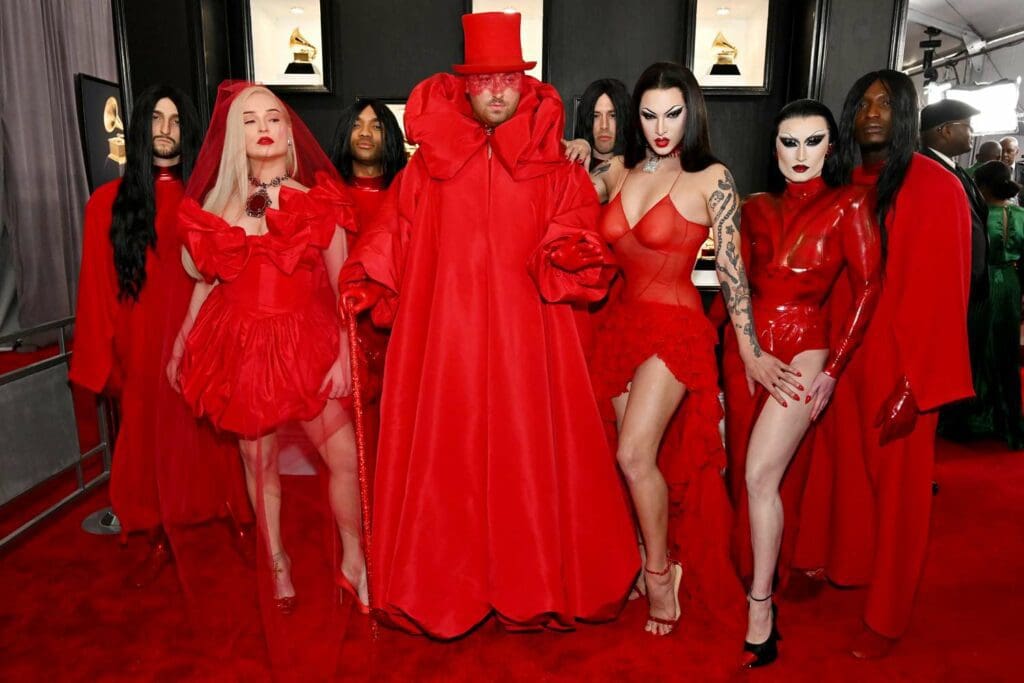
More recently, Sam Smith’s collaboration with Kim Petras on the track “Unholy” has become a powerful symbol of LGBTQ+ empowerment. Having surpassed 1 billion streams on Spotify and over 180 million views on YouTube, the song catapulted Petras to become the first openly transgender solo artist to reach number one in the US and the first openly transgender woman to receive a Grammy Award.
Smith described the track as the most powerful piece of music they had ever been a part of and highlighted the importance of celebrating and embracing one’s true self.
However, it is crucial to address the challenges faced by queer artists in the music industry too. Sam Smith, for instance, revealed in an Apple Music interview with Zane Lowe that their team initially believed releasing the track “Unholy” would be off-brand and potentially harmful to Smith’s commercial success.
This highlights the reality faced by many queer individuals who may have to conceal their true identity to achieve mainstream success. Nonetheless, artists like Smith and Petras, who fearlessly embrace their authenticity, send a powerful message to the LGBTQ+ community and encourage others to be loud, proud, and unapologetic about who they are.
Loud & Proud at Eurovision
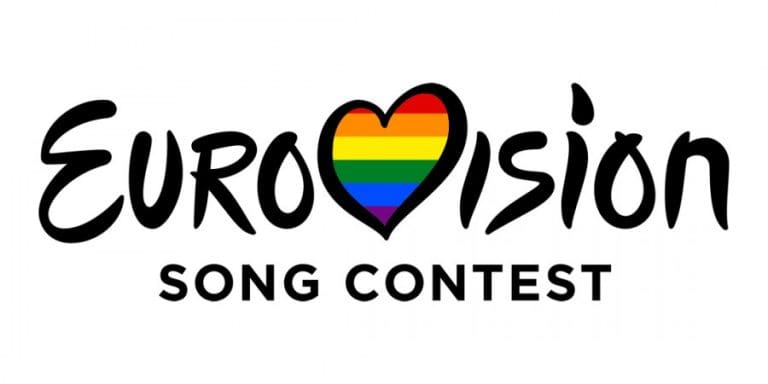
No discussion about music and Pride would be complete without acknowledging the profound connection between Eurovision and the LGBTQ+ community. Since its inception in 1956, Eurovision has seen the participation of over 1,500 artists, of whom only 40 have openly identified as queer. Remarkably, 9 of these artists have emerged as winners, representing 13% of the total 67 Eurovision winners. This statistic becomes even more significant when considering that only 3% of entrants have openly identified as queer.
Throughout its history, Eurovision has witnessed monumental moments for queer artists. In 1961, Jean-Claude Pascal from Luxembourg delivered one of the earliest winning songs. In 1998, Dana International, representing Israel, shattered barriers as the first openly transgender participant and winner in Eurovision history. Her song, “Nous les amoureux” told a story of love, although she intentionally removed specific gender references, making the message less widely understood at the time.
Rise Like A Phoenix

More recently, Austria’s Conchita Wurst won with a stunning drag performance of the powerful ballad “Rise Like A Phoenix.” And this year, Loreen made history with “Tattoo” to become the first woman and the second performer ever to win Eurovision twice.
The enduring popularity of Eurovision within the queer community can be attributed to the platform it provides for diverse voices, self-expression, and celebration of identity. The inclusive and accepting atmosphere of Eurovision resonates strongly with the values of the LGBTQ+ community, fostering a sense of unity and camaraderie.
As Eurovision continues to evolve and embrace diversity, it serves as a testament to the progress made in creating an inclusive and accepting world.
Platform Responsibility and Global Initiatives
Music streaming platforms have recognised the importance of amplifying LGBTQ+ voices and celebrating the community’s contributions to music and culture. Spotify’s GLOW initiative, launched in January 2023, is dedicated to showcasing and honouring LGBTQ+ creators in over 50 markets worldwide. GLOW ensures that queer artists and their music are heard and acknowledged throughout the year, fostering inclusivity and representation within the music industry.
Similarly, Apple Music features a dedicated Pride section that offers specially curated playlists, highlighting a wide range of queer and trans artists. This year-round celebration of Pride not only provides visibility but also serves as a testament to the power of music in fostering unity and acceptance.
Other global initiatives include YouTube’s 2022 #YouTubePrideChallenge in collaboration with The Trevor Project, the world’s largest suicide prevention and crisis intervention organisation for LGBTQ+ youth. Supporting this challenge was a collection of content exploring LGBTQ+ history – the YouTube Pride destination – but this has notably been taken down since.
Though this kind of visibility is important, it also shows the disconnect between the community needing representation and companies looking to create commercially driven moments. Indeed, there is a tendency in the wider entertainment industry to sometimes show LGBTQ+ representation in surface-level ways that don’t always support queer staff or consumers.
Queer People in TV & Film
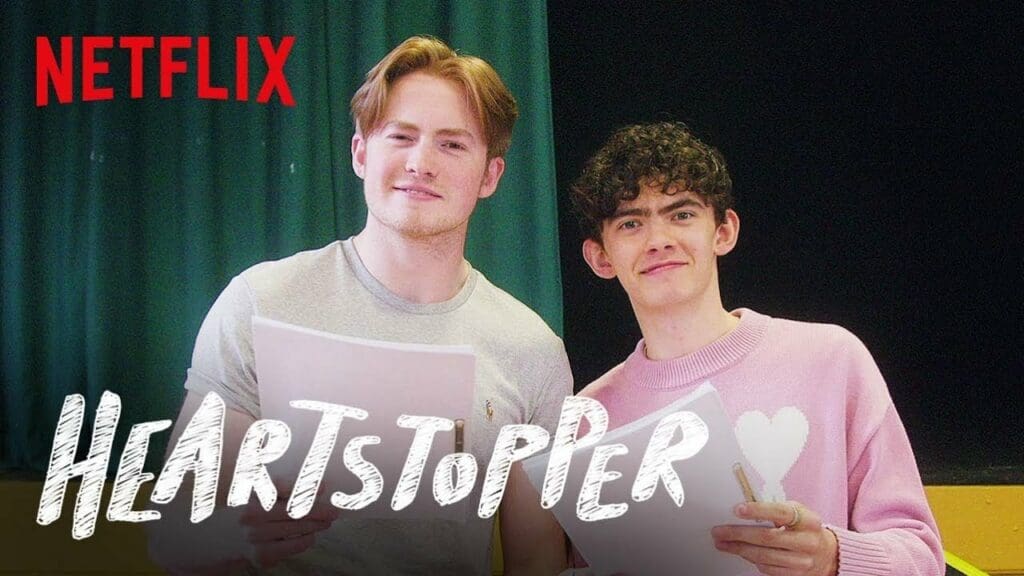
Television and film have also played significant roles in shaping public perceptions and narratives surrounding the LGBTQ+ community. Historically, queer stories were often excluded, or when included, portrayed in limited and stereotypical ways. However, recent years have witnessed progress, with more inclusive representation and authentic portrayals of LGBTQ+ characters and experiences.
Netflix’s LGBTQ+ series “Heartstopper”, based on the graphic novel by Alice Oseman, captured the hearts of audiences with its heartfelt and often relatable storytelling about two boys at a grammar school who develop a crush on one another. The series features music from the queer community, including Orla Gartland’s “Why Am I Like This?”
Following the series’ release, the song saw a 40% jump in streams and went on to receive over 300,000 Shazams – a key measure of fan engagement – demonstrating the power of music to resonate with viewers and encapsulate shared experiences. This connection is exemplified by the song’s poignant question, reflecting the inner thoughts and struggles faced by many queer people.
While advancements have been made, challenges also persist. Some recent films, such as Disney’s “Lightyear” and “Strange World” have incorporated queer characters into their narratives, representing a step forward in LGBTQ+ visibility. However, these films have also faced censorship and bans in certain countries, shining a light on the ongoing struggles and discrimination faced by many in the community.
A TV Phenomenon: RuPaul’s Drag Race
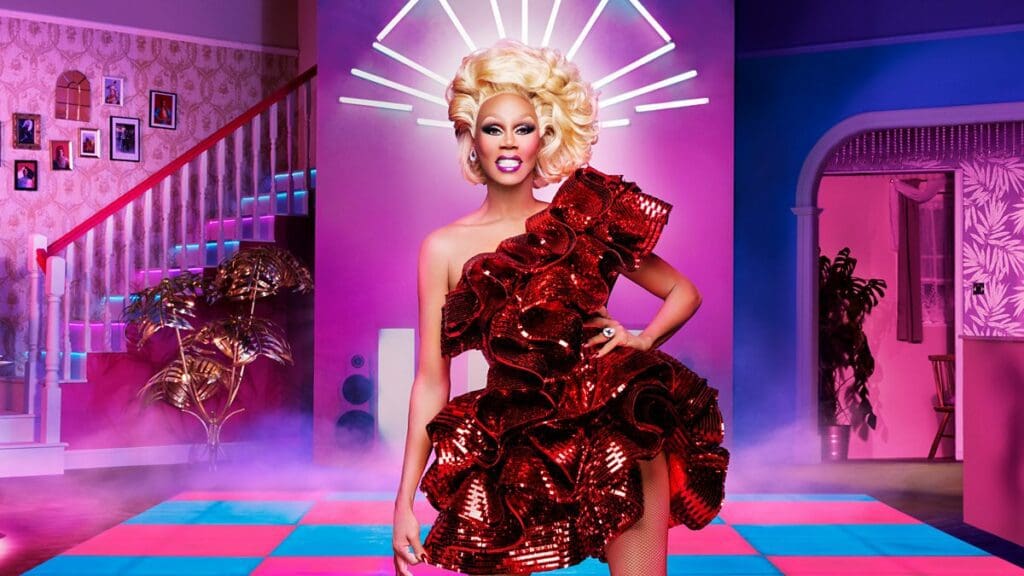
Few shows have made an impact on LGBTQ+ representation like RuPaul’s Drag Race. Since its debut in 2009, the reality competition has become a cultural phenomenon and boasts an impressive 39 Emmy nominations and 24 wins.
Hosted by the iconic drag queen RuPaul, the show has served as a catalyst for conversations about inclusivity and acceptance. And with a dedicated fan base and increasing viewership, its impact on music has been huge, helping to introduce audiences to the vibrant and diverse sounds of the LGBTQ+ community.
Fun fact: did you know that the RuPaul’s Drag Race theme music was composed by RuPaul?
Pride Month For All
As Pride Month unfolds, we celebrate the progress made in the pursuit of equality and extend a hand of solidarity to those still facing prejudice. In truth, for all the progress that has been made, recent years have also witnessed the rolling back of key LGBTQ+ rights across the world, such as Florida’s “Don’t Say Gay” Bill or Uganda’s increasingly severe anti-gay Bill.
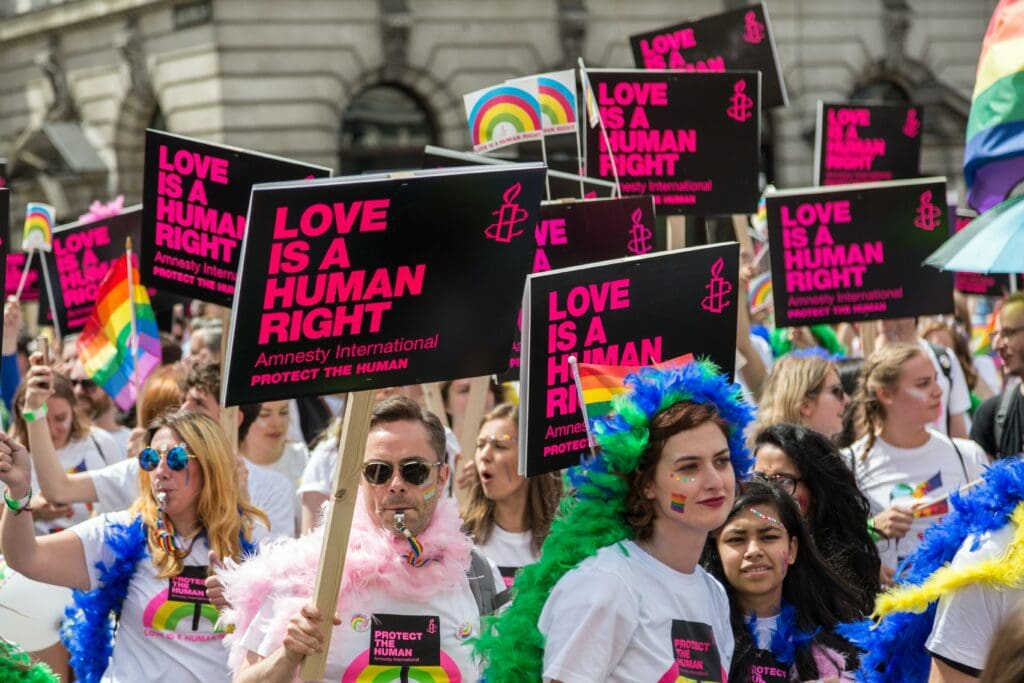
These changes – among many others – affect LGBTQ+ lives deeply. In the regions where these changes apply directly, the impact is obviously very real and could subject people to severe mental pressures or even death. More widely, these policies deeply concern many in the community because they signal a setback in the hard-won progress of the last 50 years, and for young LGBTQ+ people they can mean the difference between freedom of expression and repression.
Despite all this, music has been a driving force in the LGBTQ+ community’s journey, providing a source of empowerment, unity, and self-expression. It has given voice to marginalised individuals, created anthems of resilience, and amplified messages of love and acceptance. And though the music industry has at times held back some artists for fear of their queerness, there is much evidence to show that we’re on the right path forward.
During Pride Month and beyond, let us embrace the power of music to uplift, inspire, and celebrate the vibrant diversity of the LGBTQ+ community. Together, we can continue to champion equality and raise awareness so that we may live in a world where everyone can live authentically and proudly.









